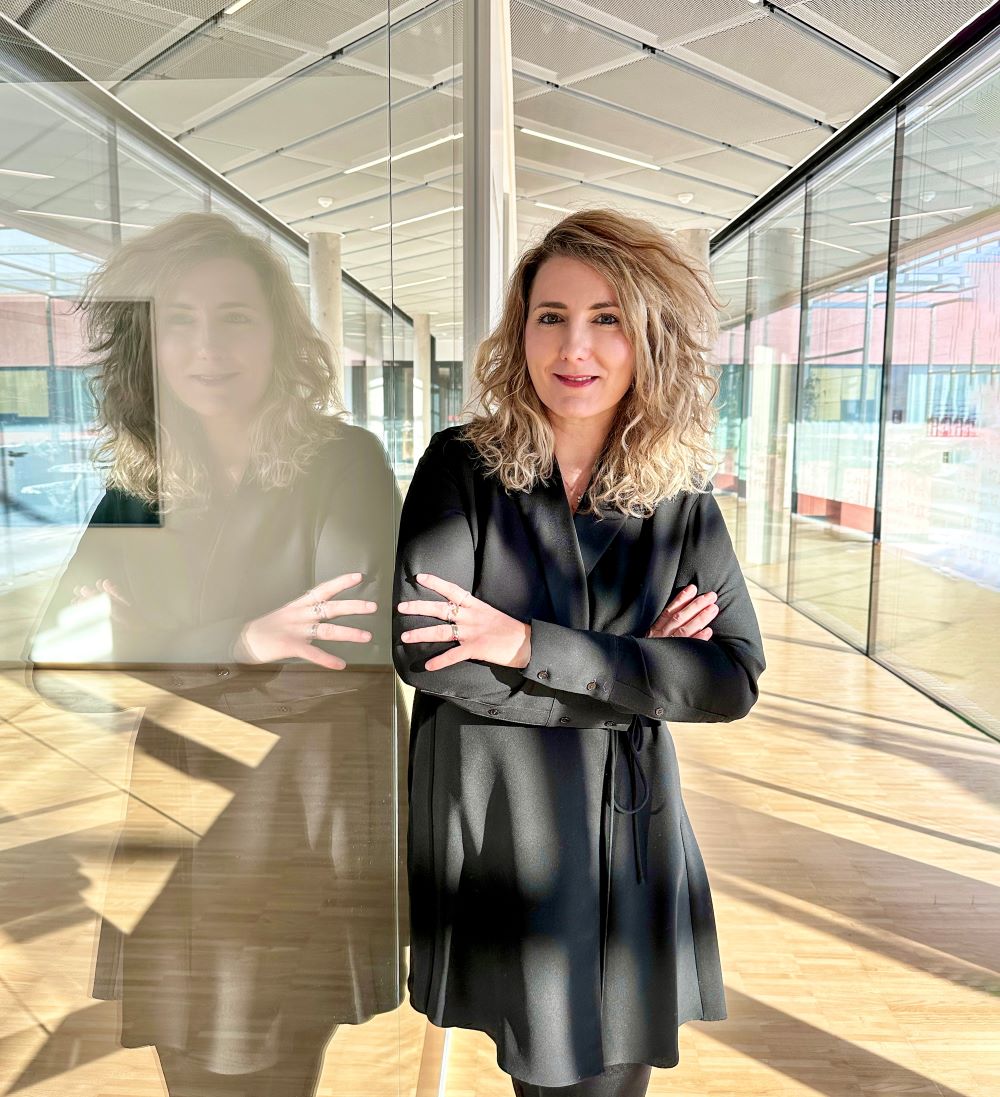January 12, 2024
Anđela Šarić Promoted to Professor
A fast-track path to tenure at ISTA for research on simulating living matter
Anđela Šarić, the most recent ISTA faculty member to be tenured as a full Professor, joined the Institute in 2022 while being an Associate Professor of Physics at the University College London. Her group, “Computational Soft and Living Matter,” investigates the molecular machinery of life via computational modeling and simulation at the intersection of soft matter physics, molecular cell biology, and physical chemistry.

Anđela Šarić, who joined the Institute of Science and Technology Austria (ISTA) in 2022 as an Assistant Professor, was tenured last December on a fast-track path to full professorship. “I am delighted to announce the most recent promotion of Anđela Šarić to Professor,” wrote ISTA President Martin Hetzer in an email to the campus community in December, announcing Šarić’s professorship. ISTA provides Assistant Professors with the possibility to individually adapt their path to tenure based on their previous career developments. Her professorship marks a significant milestone in Šarić’s illustrious career in computational biological and soft matter physics. Her scientific journey, which kicked off in chemistry and chemical physics, is a testament to her groundbreaking research and dedication to advancing scientific knowledge.
How lifeless molecules give rise to living organisms
Throughout her research, Šarić was captivated by the molecular machinery behind life. Her early fascination with ATP synthase during her undergraduate studies, which produces energy for the cells while “somehow braving messy temperature fluctuations,” further fueled her scientific curiosity, she says. Šarić has increasingly focused on the physical mechanisms underlying the self-organization of biomolecules in both health and disease. By employing computational models rooted in soft matter and statistical physics, her research delves into the intricate processes of cellular reshaping, cell division, and the formation of pathological protein aggregates in neurodegenerative diseases such as Parkinson’s and Alzheimer’s.
“My group’s research interests are driven by the fundamental questions of how lifeless molecules give rise to living organisms and the factors that contribute to disease development,” she says. Her work bridges the gap between disciplines, combining soft matter physics, molecular cell biology, and physical chemistry to uncover the underlying principles governing biological systems. While focusing on computational modeling and simulation, Šarić closely collaborates with experimentalists. “We try to build models from minimal ingredients based on our discussions with experimentalists and then see whether we get the behavior that they observe in nature. We go back and forth on what might be missing in the model, what we can ignore, and what we need to add,” she explains.
Šarić’s career path to ISTA
After her undergraduate diploma in chemistry at the University of Zagreb in her home country, Croatia, Šarić pursued her graduate studies in chemical physics in the US at Columbia University, New York, earning her PhD with distinction in 2013. She then moved to the University of Cambridge, UK, where she conducted her postdoctoral research. In 2016, she became a Junior Group Leader at the University College London, UK, where she later received tenure as an Associate Professor of Biological and Soft Matter Physics in 2019 before joining the ISTA faculty three years later.
Šarić received multiple awards and distinctions. These include an ERC Starting Grant in 2018, her selection into the EMBO Young Investigator Programme in 2021, and her election as one of the two winners of the Soft Matter Lectureship by the Royal Society of Chemistry in 2023. In addition, she received an American Biophysical Society Paper of the Year Award in San Francisco in 2022.
One recent highlight is Šarić’s recognition as a Vallee Scholar in 2022 shortly after she joined the ISTA faculty. The Vallee Scholars Award is a prestigious honor bestowed upon promising young scientists who have made significant contributions to biomedical research. Upon receiving this accolade, Šarić emphasized the biomedical potential of her research: “The in-depth understanding of cell-reshaping principles that my research will provide can allow us to design therapeutics for the cases when these processes go wrong and lead to diseases. It can also instruct us on how to reproduce such processes in the laboratory to make artificial tissues and smart biomaterials–synthetic materials that can do similarly amazing things as living cells and tissues, such as dividing, moving, or healing.” Šarić is ISTA’s first, and only, Vallee Scholar since the Institute became eligible to nominate a single candidate per call in 2019.
Šarić’s promotion to the rank of Professor affirms her remarkable achievements in the field of computational biological and soft matter physics and her important contributions to bridging disciplines at ISTA and beyond. “I look forward to continuing to investigate the deepest questions of how life works together with my colleagues in biology, physics, and computer science, thus further blurring the boundaries between traditional scientific disciplines,” she concludes, envisioning the future of her research at ISTA.



